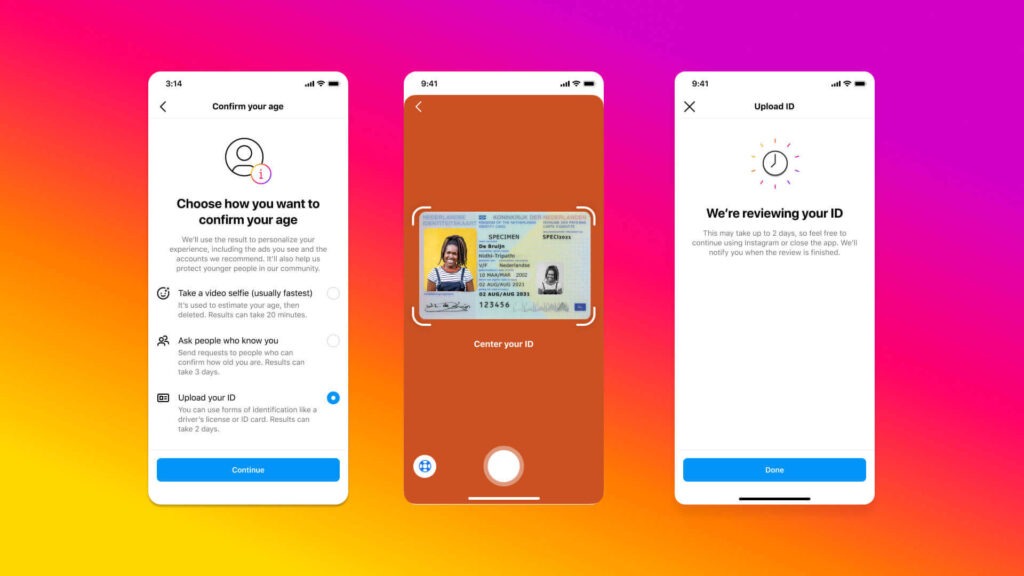Meta has launched a new method that not everyone likes
A video selfie that uses facial recognition ensures that users meet the minimum requirements to sign up on Instagram. This is the novelty announced by the social media company led by Adam Mosseri, which has introduced two new ways of verifying age, in addition to the traditional option: sending in one’s identification documents, i.e., identity card or driving license. With the multiplication of reports and the confessions of whistleblower Frances Haugen about the negative impact of Instagram on minors (the minimum age to sign up is 13, although, in some countries, it starts at 14 and 15), it has become a priority for Meta to find effective methods to establish the age of new members and those already registered who want to change their age.
An issue that was underestimated for a long time, considering that only since 2019 has Instagram included the minimum age among the mandatory requirements to activate an account on the platform. This represents an important detail as it allows social media to provide experiences in line with one’s age group. A point that applies in particular to teenagers, for whom preventive measures aimed at reducing risks and potential disturbances are foreseen: the default setting of private accounts, the prevention of unwanted contact from unknown adults, and the limitation of the options available to advertisers for tailored ads.
Uploading the document is not a mode immune to circumvention to obtain approval from verification systems. This is why alternatives are now arriving that promise greater precision and resistance to attempts to cheat the system. This does not seem to be the case with social vouching, a process that allows underage members to ask for confirmation of their age from three virtual friends, who receive an automatic request and have three days to respond. This method seems limited by the underage user’s ability to warn the recipients and ask them for support in overcoming the system’s requests. On the other hand, verification via facial recognition is a different matter. A system that Instagram has not developed in-house but for which it relies on Yoti. This company has developed a process for age verification via artificial intelligence already used by other social networks, mobile gaming, and eCommerce companies.

The age verification process involves recording a short video selfie, with the information and images submitted not even allowing Yoti to trace the identity of the person in question, according to Meta. As for collecting sensitive material, Instagram assures that the images are deleted from all servers when the operations are completed. Yoti’s technologies are, however, able to estimate age in relation to bodily features and share the estimate with the social media, with a degree of accuracy that, according to a study by an independent company, is around 98.8 percent for the under-18 and under-25 age group and a margin of error of approximately 2.5 years.
With more than 500 million checks carried out worldwide, for the developers, this is related to skin colour, age group, and gender. However, more than one person who tested the system speaks of a higher error rate affecting women and African-Americans. In contrast, others have pointed out that Yoti has already signed contracts with the governments of Germany and the United Kingdom. However, it is unclear which service the two countries intend to use for the facial recognition system.
The trial will only be launched in the US for now. It will start for under-13s and under-age members wishing to change their age to use services reserved for adults, such as Facebook Dating, and prevent teenagers from exchanging messages with unknown or potentially dangerous adults. Meta intends to expand the audience quickly and spread the new age verification method on a large scale, although it remains to be seen how the EU will react to the attempt to introduce a facial recognition system applied to under-18s.



